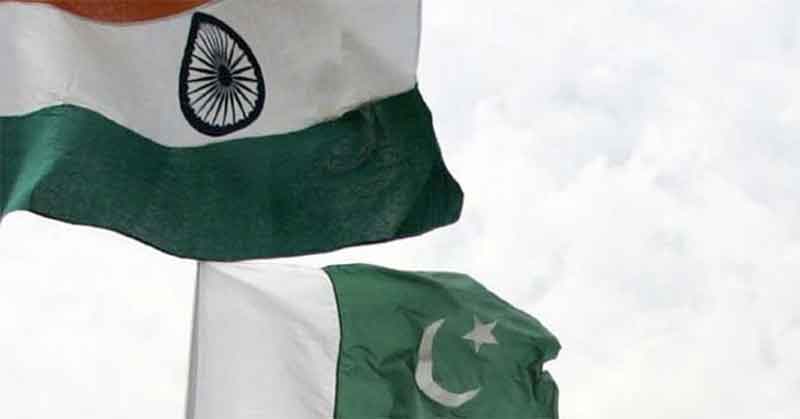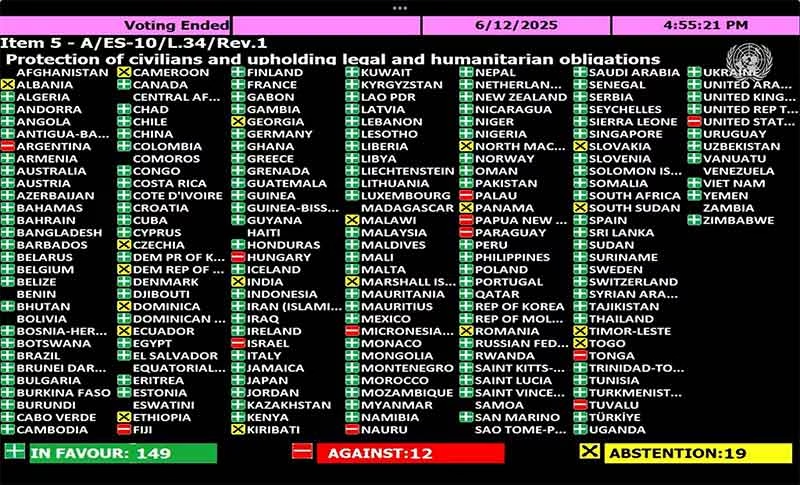
In the aftermath of the attack on 26 tourists in Pahalgam in Kashmir on 22nd April, 2025, there was expected outrage in India. Pakistan was judged as the source-country of the attackers, an allegation that Pakistan has point-blank denied. Instead, Pakistan instantly called for an independent international enquiry to examine India’s allegations. India dismissed Pakistan’s call for this independent verification, preferring to apply military force on Pakistan. Pakistan, did not lag behind and took recourse to retaliation.
The narrative has contrasting versions emanating from both sides. The Indian government alleges the terrorists targeted a group of mostly Hindu tourists in Indian-administered Kashmir, killing 26 people. The escalations were swift from India having turned down the idea of an international/independent enquiry. India’s Cabinet Committee on Security issued diplomatic, political, and non-military directives against Pakistan on April 24. Pakistan responded with reciprocal measures after a meeting of its own National Security Committee the following day. Both countries reduced the strength of their High Commissions in each other’s countries to 30 and declared Air, Naval, and Defence Advisors Persona Non Grata.
At the end of four days of fighting, both sides claim they got the better of the other side. At the end of the day, the number of deaths, places attacked, and civilians killed is nothing more than a deadly and tragic war statistic. War cannot be an adventure in which boasting superiority and winning is the reward. Beyond the dead, there are devastated economies and losses of loved ones. War, therefore, is the space where obscene human barbarity is exhibited. Both sides mourn their dead. The numbers are raw and cruel statistics. The situation is volatile and a decline must be pre-empted.
India was swift to exact revenge after the Pahalgam attacks. It followed and suspended the 1960 Indus Waters Treaty (IWT), which is being seen in Pakistan, and in the international arena, as a breach of Pakistan’s publicly declared redline and threshold for war. Pakistan has warned that any attempt by India to “stop or divert the flow of water” will be considered an “act of war”. The question is: ‘Does India have the right to abandon an 80+ year old treaty to stop the Indus River and two of its tributaries from flowing into Pakistan?’ The treaty was a model of well-governed water sharing of six rivers in the Indus basin between the two countries. The Treaty survived two wars between the nuclear rivals and was seen as an illustration of trans-boundary water management. The treaty allocated the three eastern rivers – the Ravi, Beas and Sutlej – of the Indus basin to India, while 80% of the three western ones – the Indus, Jhelum and Chenab – to Pakistan. Disputes have flared in the past, with Pakistan objecting to some of India’s hydropower and water infrastructure projects, arguing they would reduce river flows and violate the treaty. (More than 80% of Pakistan’s agriculture and around a third of its hydropower depend on the Indus basin’s water.) Hence, suspension of the flow of waters can be debilitating for Pakistan. There could be hunger, starvation, and economic collapse that affects millions. Starvation and depriving of a basic right- water tantamount to weaponization of food and famine. It follows the ugly model of Israel in Gaza which starves an entire population. More than 80% of Pakistan’s agriculture and around a third of its hydropower depend on the Indus basin’s water. To have people starve deprived of water will be inhuman. It should be an out-of-bounds policy for India.
India’s military options include limited cross-border strikes, using stand-off systems like the Dassault Rafale mounted SCALP missile, or surface-to-surface options like the BrahMos cruise missiles or short-range ballistic missiles. Both countries maintain a high level of military preparedness. At the same time, in both countries a large proportion of their populace suffer poverty and deprivation. Armaments will not offer bread, shelter, water, and education.
India’s Foreign Ministry is angling for punitive actions against Pakistan. The Indian media is leading the onslaught with a fury that will create permanent hate of Pakistan in India. Foreign Ministers on both sides are obliged to take a pro-active role in diffusing the situation, moderate the media, and create the climate for peace rather than war. It sometimes seems that EAM Jaishankar is drumming up the bugles of war. Bilawal Bhutto is fiercely combative too: “I want to tell India that the Indus is ours and will remain ours. Either water will flow from the Indus or their blood will”. These high-ranking diplomats need to tone-down in a one-on-one dialogue to lead the peace process to its final conclusion. Hurling abuse at each other’s country’s will carry more people to their graveyards. The tough talk impresses some but disappoints those who are yearning for a just and lasting peace to the enmity both countries have meaninglessly nurtured.
On 18th May, India launched “Operation Sindoor” designed to be “a diplomatic outreach initiative was announced. Seven multi-party delegations, comprising 59 Members of Parliament, were to visit over 30 countries to rally support for India’s stance on various global issues. The Indian Government announced 59 names for seven multi-party delegations to explain India’s stance on terrorism emanating from Pakistan, after rejecting three of the four names suggested by the Congress. Sashi Tharoor turned out to be a BJP nominee and did not receive enthusiastic applause from his own party. The entire idea has been questioned by people, intellectuals, and peace activists. The Left parties who first warmed up with support to the Government have also raised questions about the response and tactics to fight back. Questions as to whether the attacks were a false flag operation, or authentically rooted in Pakistan were raised. Pulwama comes up as a ghost to strike India. The Deccan Herald points out that the issue at stake is: “Will an all-party delegation strengthen India’s stance or weaken its position? Right or wrong, great powers — and under Prime Minister Narendra Modi India claims to be one — do not send all-party delegations abroad to rationalise their action?” These delegations will orient foreign governments and international organizations about India’s perspectives on key global issues, promoting India’s interests and fostering stronger diplomatic ties. Big countries would not follow this weak line of selling their narrative. Diplomats in their stations should have done that. Take for example two situations. Putin does not. Netanyahu does not. Which country has? This is a huge public relations exercise to attest to the unity of all political parties in the country. It has been viewed with skepticism by the countries visited and political thinkers-analysts in India too. Media reports suggest that the team, in fact, had to make-do with meeting officials who did not rank high enough to inflict policy re-arrangements between their countries and India/Pakistan. Parliament must audit the work of the delegations.
At the end, India may end up having failed to convince most, if not all, countries to turn their support to India and diminish their relationships to Pakistan. Beyond niceties, India will not achieve anything except to drain massive resources and get the delegation to say things that is music to the pseudo-nationalist. It would have been an altogether different matter, if the Parliament had sat to debate a serious debate and dialogue about the future of Kashmir including a far-sighted solution. This would have had to include returning autonomy to Kashmir and setting aside the hastily snatched Article 370 from the people of Kashmir. Winning friends for India and painting Pakistan as the villain is hardly the way forward for two neighbors. After all, the people of both countries have a common heritage and common destiny. Both governments must find it in them to come out of their political inflexibility and learn the art of give-and-take, even moving out from the UNSC resolution of 1948 without surrendering the spirit of its intent. What is even more absorbing is the relinquishment of India’s long-held tenacious stand that Kashmir is a bilateral issue and does not necessitate any third-party intervention or mediation. That is now thrown out of the window. Even during the war, some 23 countries were in frantic dialogue with India and Pakistan in efforts to get them to pull back and avoid the worst. Kashmir is now irrevocably internationalized.
Concerns about the restoration of peace and order and the plebiscite in the State of Jammu and Kashmir were approved by the United Nations Security Council (UNSC) as far back as 1948. Both countries have not moved an inch forward to pursue this. Regardless of whether either country perceived the UNSC as a starting point for a serious dialogue is in doubt. Resolution 39 (1948) established the UN Commission for India and Pakistan (UNCIP) to investigate the situation and mediate between India and Pakistan. Resolution 47 (1948) further instructed UNCIP to help restore peace, facilitate a ceasefire, and prepare for a free and impartial plebiscite. The UNSC Resolution 39 (1948) established the UN Commission for India and Pakistan (UNCIP) to investigate the situation and mediate between India and Pakistan. Resolution 47 (1948) further instructed UNCIP to help restore peace, facilitate a ceasefire, and prepare for a free and impartial plebiscite. 77 years down the line, both countries are at war a conditioned worsened by the horrifying fact that each are now nuclear entities. If Pakistan is controlled by its Generals, India is under the guard of a right-wing entity. Both could be as ruthless and, at a guess, mindless. Even a a border skirmish has the potential to assume consequences that are catastrophic and turn out to be a reckless irony.
A nuclear exchange between India and Pakistan would have catastrophic consequences for the region and the world. Immediate consequences would have hundreds of thousands to millions of immediate deaths coupled with widespread destruction of cities, towns, and infrastructure. The nuclear fallout would contaminate air, water, and soil, leading to long-term health effects. A large-scale nuclear exchange in South Asia could lead to a nuclear winter, causing widespread crop failures and famine. There would be sweeping long-term consequences in the form of lasting health effects concluding in amplified cases of cancer, birth defects, and other health glitches. The environment would suffer long-term damage, affecting future generations. Survivors would suffer from trauma, anxiety, and depression. Those who have access to nuclear power in both countries that have next-to-little awareness of the scientific dimensions of nuclear warfare. A nuclear conflict will destabilize the entire region, potentially drawing in other countries. Millions of people would be displaced, and made refugees. Trade, commerce, and economic growth would have meant economic devastation. A nuclear conflict in South Asia would have far-reaching economic implications, potentially triggering a global recession and shock.
A 77-year-old conflict does not have quick-fix solutions. Based on patient-democratic dialogue, the Kashmiri people should find incremental autonomy without prejudices divisions that both India and Pakistan must oversee. People-to-people exchanges must rank first through sport, culture, tourism, and trade. Kashmir must find autonomous political space. A de-militarized zone must be enforced and policed by Independent international observers.
“Peace will not come from the barrel of a gun” is an idealistic notion. It asserts that violence and conflict are not the means to achieve lasting peace. It suggests that true peace requires more than just military strength or force; it involves diplomatic solutions, negotiation, reconciliation, and understanding between different groups or nations. The pre-condition and guarantee for peace is justice.
Subscribe to Our Newsletter
Get the latest CounterCurrents updates delivered straight to your inbox.
Ranjan Solomon is a political commentator







































